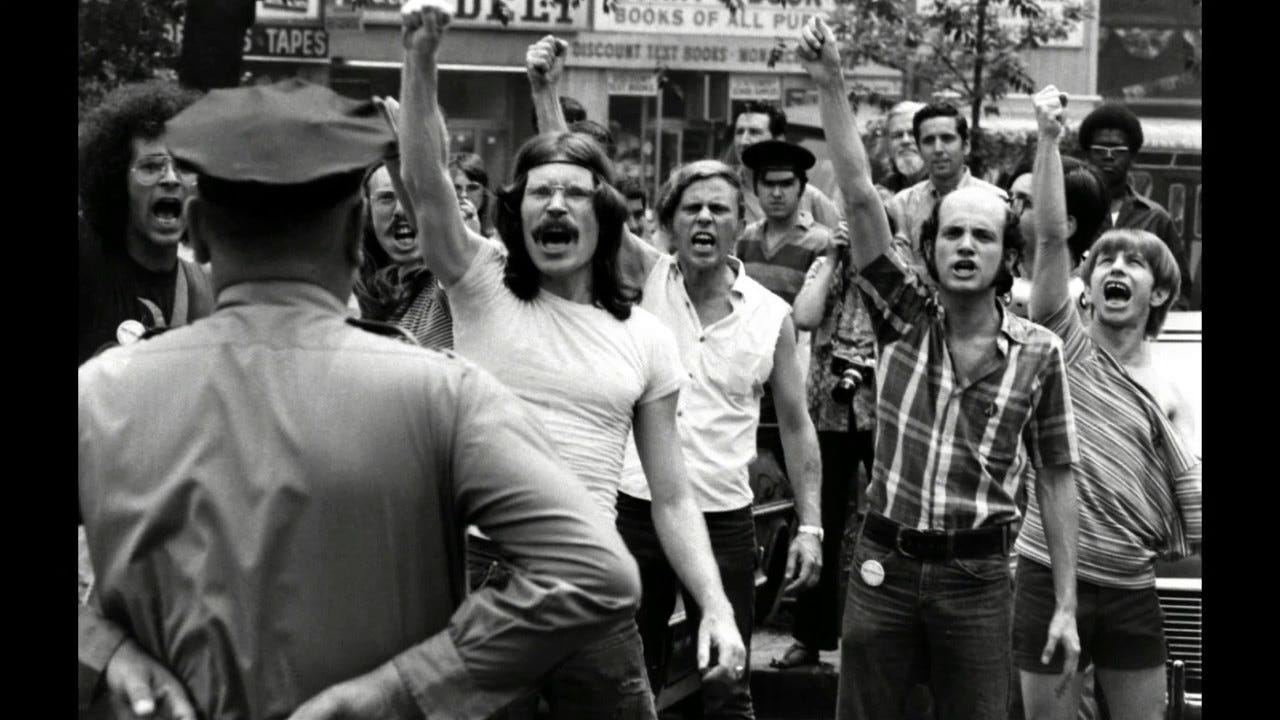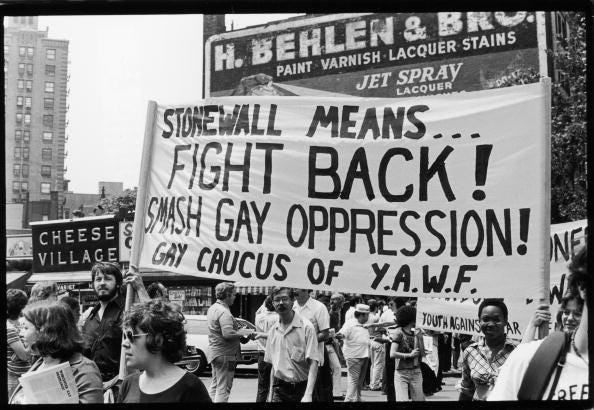That Summer of ’69: Remembering Stonewall
On June 28, 1969, at New York’s Greenwich village something extraordinary happened. Police raided a gay bar to arrest members of the LGBT Community. But that night, the patrons of the Bar and the neighbourhood decided to do something that would change history and would galvanize the LGBT rights movement. The citizens fought back.

America in specific and the World, in general, wasn’t tolerant towards LGBT rights during and before the 1960’s. Though some places are still as bad till date, in the 60’ solicitation of homosexual relations was illegal in New York City, and there was a criminal statute that allowed police to arrest people wearing less than three gender-appropriate articles of clothing. New York’s law prohibited individuals from assembling “disguised” in public places; California also had passed a law that prohibited an individual from “masquerading” in another person’s attire for unlawful purposes. Both laws were used by the Police and authorities to target cross-dressers.

In the early hours of June 28, 1969, New York City police raided the Stonewall Inn, a gay club located in Greenwich Village in New York City. The raid sparked a riot among bar patrons and neighbourhood residents as police roughly hauled employees and patrons out of the bar. Fed up with constant police harassment and social discrimination, angry patrons and neighbourhood residents agitated as people were aggressively manhandled. At one point, an officer hit a lesbian over the head as he was arresting her which incited the crowd to begin to throw pennies, bottles, cobblestones, and other objects at the police.
Within minutes, a full-blown riot involving hundreds of people began which set the Stonewall Inn on fire. The fire department and a riot squad were eventually able to douse the flames, rescue those inside Stonewall, and disperse the crowd. But the protests, sometimes involving thousands of people, continued in the area for five more days.

Though the Stonewall uprising didn’t start the gay rights movement, it was a galvanizing force for LGBT political activism. Though older groups such as the Mattachine Society, which was founded in southern California as a discussion group for gay men and had flourished in the 1950s, post the Stonewall incident, many new groups including the Gay Liberation Front, Human Rights Campaign, GLAAD (formerly Gay and Lesbian Alliance Against Defamation), and PFLAG (formerly Parents, Families and Friends of Lesbians and Gays) started up. Stonewall soon became a symbol of resistance to social and political discrimination that would inspire solidarity among homosexual groups for decades. A symbol which advocated coming to the streets and demanding their rights instead of meekly hiding in the shadows.

In 2016, President Barack Obama designated the site of the riots — Stonewall Inn, Christopher Park, and the surrounding streets and sidewalks — a national monument in recognition of the area’s contribution to gay and human rights.
In honour of those who protested at Stonewall and the protests all over the Country that this incident sparked, and in the memory and honour of those who were marginalized for years and forced to take to the streets for the right to be treated as equal humans, the month of June is celebrated as a month of Pride.

Leave a Reply